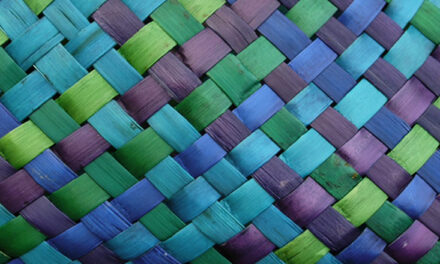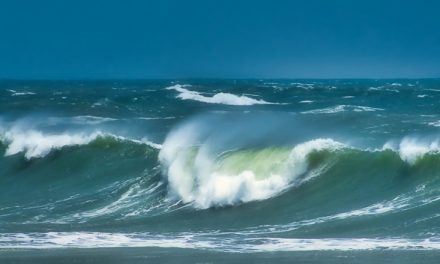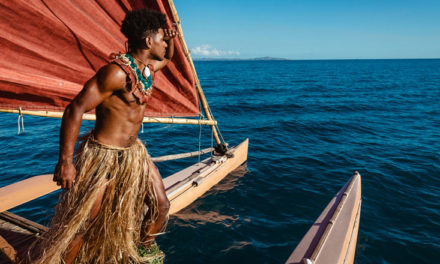The Principle of the Seed
Tena tātou katoa e te iwi mīhana… (Greetings to all the people in mission),
This month’s whakataukī (proverb) is relatively well known among Māori: “E kore au e ngaro; he kākano i ruia mai i Rangiātea” [I will not be lost; I am a seed planted in the ‘open heavens’].
I regularly marvel at the way the Spirit moves and leads me into contact with people who become significant in my thought-life and ministry. My narrative is framed by my origins as an illegitimate Māori/Pākehā kid from Cannons Creek, Porirua (an infamous social welfare housing development outside of New Zealand’s capital city, Wellington). This is a stark contrast to my rubbing shoulders with those ‘above my station’ in the local and global Christian community. [You might prefer to play down the ‘class’ card, but it is real in the Christian community; as is the ‘race’ card.]
My most recent privilege was following Professor Dr. Sebastian Kim (Fuller Seminary) at the lecturn for Laidlaw College’s “Culturally Diverse Christian Communities: Impact and Implication” mini-conference. After the conference I also had opportunity to chat with Dr Kim’s wife Dr Kirsteen Kim, also of Fuller, who had recently presented at the ANZATS conference hosted by Carey College. Inspiring.
Christian unity in cultural diversity requires a compelling vision of positive transformation that mutually benefits the person and the group.
In order to ensure that what I wanted to share would add value to Prof. Kim’s presentation, I dove into the 2nd edition of their book, Christianity as a World Religion. There, I was to find only confirmation of my intended thesis, which was: “Christian unity in cultural diversity requires a compelling vision of positive transformation that mutually benefits the person and the group”. If you are so compelled, you can read the entire transcript via the articles section of this website: /jaysarticles.
Core to my thesis is the belief that we need to view the gospel as a seed rather than a fully formed tree that can be transplanted. In most of my experience of missions it feels like evangelical missionaries have interpreted the concept of “contextualisation” as a tree. They take theology as they have been taught it (in Western form) and try to translate it into their host language and context. This interpretation of the term is all the more ironic since it was originally developed within the World Council of Churches community back in the mid-70’s as precisely the opposite. Back then, it referred to the gospel as something that took root in the soil of a context and grew, with the environment influencing its particular attributes as it formed.
The gospel… is not a fully formed commodity to be traded but a narrative to be shared, adopted and allowed to adapt to the world of the recipient.
This resonates in many ways for both indigenous and post-modern contexts. We do well to understand the gospel as a kernel of an idea with narrative DNA, rooted in the whakapapa (heritage/lineage) of faith that reaches back to God’s promise to Abraham. This mitigates the propensity to impose a particular perspective of the faith upon the potential new recipients. The gospel, seen in this way, is not a fully formed commodity to be traded but a narrative to be shared, adopted and allowed to adapt to the world of the recipient. Of course, to satisfy evangelicals, that adaptation would need to be recognisable against Scripture, but we would do well to allow the Holy Spirit to ensure it does, rather than dictate how it should according to our faith experience. That’s not to dismiss the value of theological education external to the recipient culture, but it does put special onus on theological educators to take great care to allow indigenous theologies to emerge.
Prof. Kim reiterated the well-evidenced claim that the spread of world-Christianity has more to do with indigenous and migrating believers than intentional missionary effort. 174 years or so ago this was the case with Māori, although as Alistair Reese points out, it was brutally interrupted. Don’t get me wrong, missionary effort is often catalytic, but the gospel that spreads is that which has adapted to the environment.
I view this as a grace. It allows us to see new facets of our unchanging God. It is theological diversity that ought to be celebrated not resisted, because we can learn so much; to the praise of His glorious grace (Eph 1:6). I believe Paul understood the principle of the seed well: “God gives it a body as he has determined, and to each kind of seed he gives its own body” (1 Cor 15:38). Although he says this in reference to our resurrection, he holds a similar view of the Church as a unity of diverse gifts earlier, in 1 Cor 12:14ff. The common thread is that God gives however God wills, who are we to argue against the giver?
Christianity does not have one single strand of development, one center or a single history.
It is a historical fact that “Christianity does not have one single strand of development, one center or a single history, but Christian history is diffuse, complex and polycentric” (Kim & Kim 2016). We need to move beyond the desire for theological uniformity and embrace difference in creative tension. For from the tension unforeseen blessing is created.
Christianity Today recently published an encouraging article about the growth of Christianity in Ethiopia and the missions movement that is emerging from that. I am now also aware of well-funded missions movements arising in Taiwan. One of the largest single missions organisations is sending from Nigeria. Missions is being promoted afresh in large youth events in Latin America. Based here, Pacific2Nations continues to mobilise Pasifika peoples for missions.
The way they’re all doing missions looks different, their understanding of missions varies, their objectives are… indigenous. They are seeking to bless and are planting seeds in open heavens, trusting God to form the body. As God moves, let’s celebrate together as we #stayonmission.
Whakapaingia te Atua, to tatou kaiunga ki te ao whanui (Praise to God, who sends us into the world),
Jay






